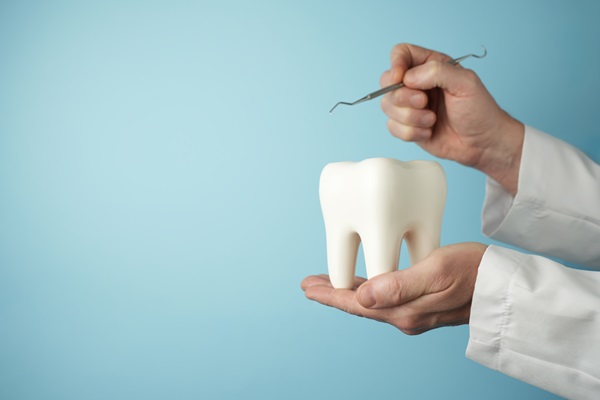An extraction is usually recommended as a last resort when a tooth is too damaged to be saved. The two main types of extractions performed by dentists are simple and surgical extractions. A simple extraction is performed when enough of the tooth is left above the gumline to pull it out with forceps. A surgical extraction is recommended when the dentist needs to make an incision into the patient’s gum tissues to reach the tooth.
Recovering from tooth extraction
Extracting a tooth can be completed in as little as an hour, but the recovery process can take up to two weeks. Some of the more common reasons a dentist might recommend an extraction include:
- Severe damage: A dentist might recommend extracting teeth that have been severely damaged due to issues like tooth decay or trauma to the tooth. It is used as a last resort when the tooth cannot be saved with a dental crown
- Gum disease: A tooth might be extracted if the structures that hold it in place have been damaged by periodontal disease. A dentist might opt to extract it so that the bone structure around it can be repaired while it is replaced with an oral prosthetic
- Crowded teeth: A dentist might also recommend extracting a tooth if a patient does not have enough space on their jaw for all of their teeth or has an extra one. Creating space helps to address any other bite issues the person is dealing with
- Infection: A tooth might be extracted if infection in it threatens to spread to other parts of the body like the brain or heart, where it can have life-threatening consequences
Recovering from teeth extraction
During the procedure, local anesthetics are used, so the patient does not feel pain as their tooth is pulled out. Many patients experience some pain and discomfort once the anesthetic wears off. The pain can be managed with prescription painkillers.
Most of the bleeding from the extraction site should stop within a few hours, but there might be additional bleeding during the first 24 hours. The bleeding stops when a blood clot forms in the socket of the extracted tooth. Keeping this clot intact is one of the most critical things when recovering from an extraction.
The clot becoming dislodged leads to a painful condition called dry socket. Patients are advised not to brush or floss their teeth for the first few days after having a tooth extracted to avoid irritating the extracted tooth’s socket and the blood clot on it.
Most of the pain associated with the procedure should go away within a few days. A week after the procedure, granulation tissues should have formed over the socket, protecting the socket until new bone tissues form there.
You might be better off extracting a tooth
Extractions are typically recommended when other options are not enough to solve a patient’s problems. The extracted tooth can be replaced with oral prosthetics like implants, so you do not have to worry about your smile being ruined. Call or visit our Marietta clinic to set up an appointment with our dentist.
Request an appointment here: https://drsykes.com or call Robert S. Sykes, DDS at (770) 873-7241 for an appointment in our Marietta office.
Check out what others are saying about our dental services on Yelp: Tooth Extraction in Marietta, GA.
Related Posts
Complications To Watch for After a Tooth Extraction
Complications after a tooth extraction are uncommon, but understanding the warning signs helps protect long-term oral health. During healing, problems such as infection, dry socket, or prolonged bleeding can occasionally develop. Knowing …
How Long Does it Take to Recover from a Tooth Extraction?
If you are in need of a tooth extraction, you may be wondering how long it will take to heal from this procedure. Let's discuss the various reasons for having a tooth …
Why We Perform Tooth Extractions
Tooth extractions are sometimes necessary and a tooth sustains damage that hinders the functionality of the tooth. While it is true that adult teeth are designed to be permanent, there are a number of conditions …
How an Emergency Dentist Fixes a Broken Tooth
A broken tooth can happen at any time — during sports, while eating, or from an unexpected fall. Regardless of the cause, an emergency dentist can help. Through prompt treatment, these dental …






